Results
-
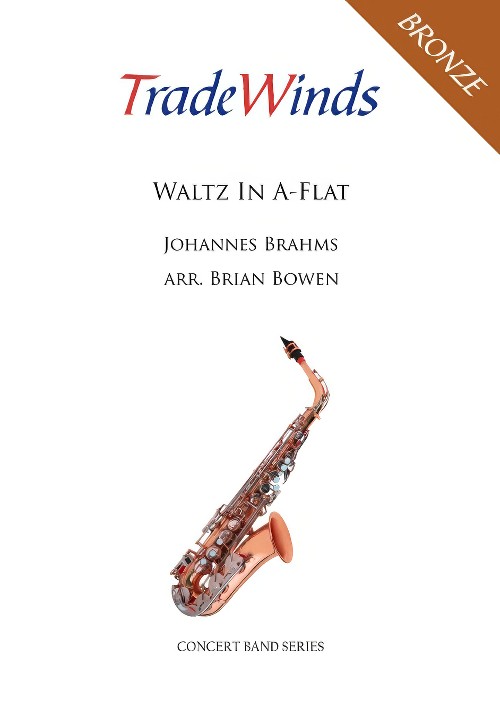 £29.95
£29.95Waltz In A-Flat (Concert Band - Score and Parts) - Brahms, Johannes - Bowen, Brian
Originally published as one of a set of 16 waltzes for piano, this beautiful melody is familiar to many, even if not by name!
Estimated dispatch 7-14 working days
-
 £5.95
£5.95Waltz In A-Flat (Concert Band - Score Only) - Brahms, Johannes - Bowen, Brian
Originally published as one of a set of 16 waltzes for piano, this beautiful melody is familiar to many, even if not by name!
Estimated dispatch 7-14 working days
-
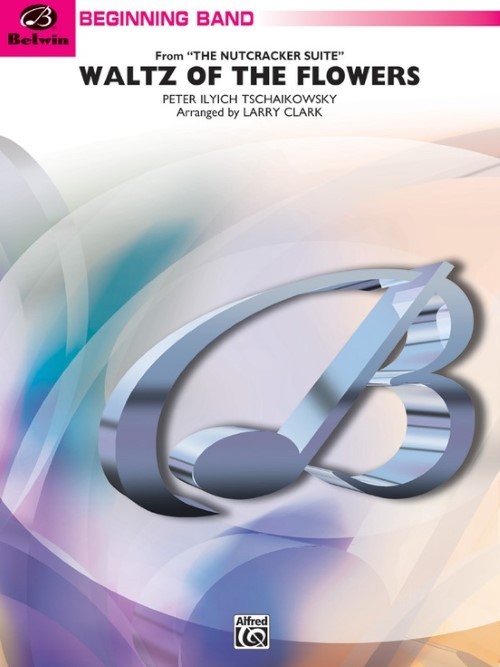 £53.95
£53.95Waltz of the Flowers (from The Nutcracker Suite) (Concert Band - Score and Parts) - Tchaikovsky, Peter Ilyich - Clark, Larry
From Tchaikovsky's ballet The Nutcracker comes this fresh scoring for young band or wind ensemble. The technical demands have been reduced, but the musical content is strongly in evidence. With a charming flow from beginning to end, this work will find its way into thousands of holiday concerts and programs at other times of the year. Delightful! Duration: 1.30
Estimated dispatch 7-14 working days
-
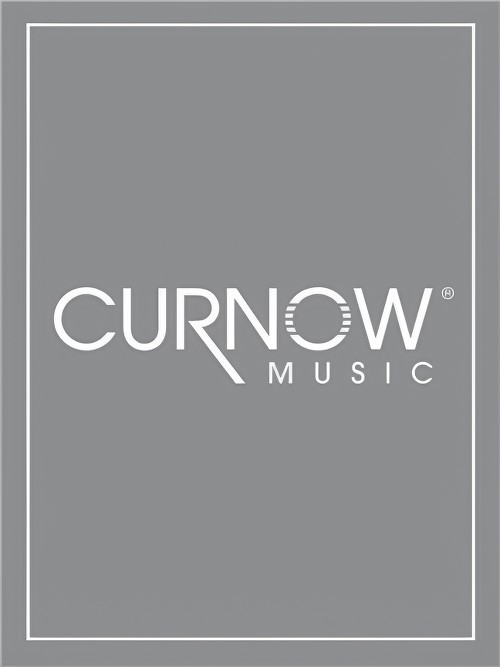 £67.50
£67.50Waltz No.2 (Concert Band - Score and Parts) - Shostakovich, Dmitri - Connery, Brian
Duration: 3.30
Estimated dispatch 7-14 working days
-
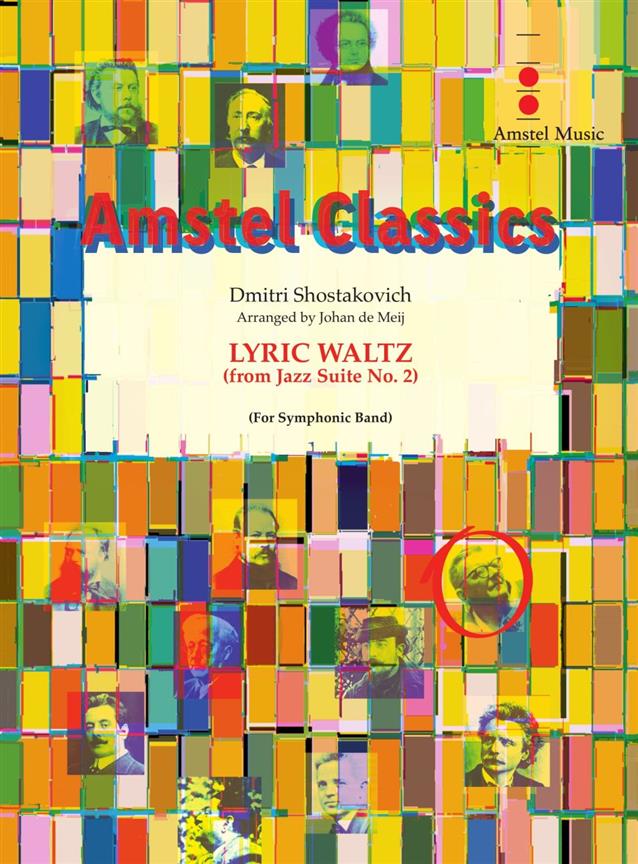 £94.00
£94.00Lyric Waltz (from Jazz Suite No.2) (Concert Band - Score and Parts) - Shostakovich, Dmitri - De Meij, Johan
In 1938 Shostakovich composed his Second Jazz Suite at the request of the recently founded State Orchestra for Jazz conducted by Victor Knushevitsky. This suite was originally scored for a complete symphony orchestra to which four saxophones, an accordion and a guitar had been added. The Jazz Suite no. 1 in three movements, composed in 1934, had been written for a smaller ensemble. The title 'Jazz Suite' is rather misleading, as the composer definitely uses the style of light music. Back in 1928, the twenty-two-year-old Shostakovich had already composed some light music. A bet among friends to make an orchestration of the popular song 'Tea for Two' in less then one hour time, caused him to compose 'Tahiti Trot'. Shostakovich easily won the bet as he completed the original and witty arrangement within only forty minutes!
Estimated dispatch 7-14 working days
-
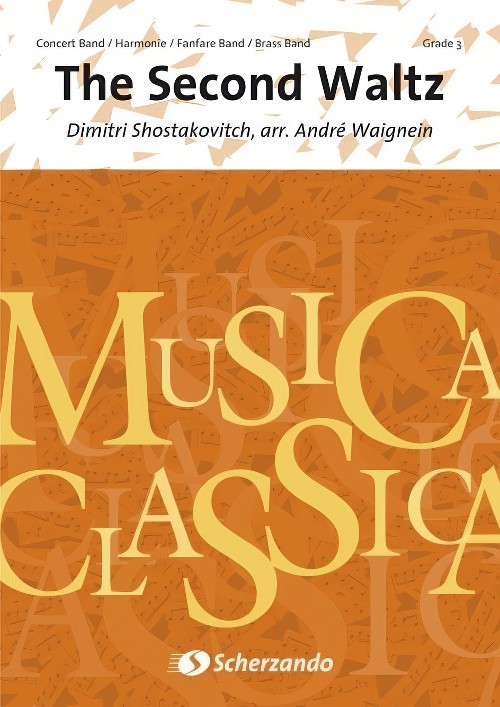 £84.99
£84.99The Second Waltz (Concert Band - Score and Parts) - Shostakovich, Dmitri - Waignein, Andre
from Jazz Suite No.2. Duration: 3.45
Estimated dispatch 7-14 working days
-
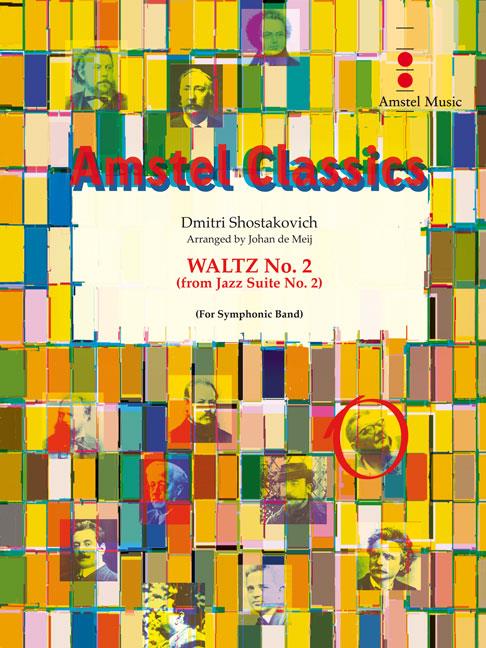 £98.00
£98.00Waltz No.2 (from Jazz Suite No.2) (Concert Band - Score and Parts) - Shostakovich, Dmitri - De Meij, Johan
In 1938 Shostakovich composed his Second Jazz Suite at the request of the recently founded State Orchestra for Jazz conducted by Victor Knushevitsky. This suite was originally scored for a complete symphony orchestra to which four saxophones, an accordion and a guitar had been added. The Jazz Suite no. 1 in three movements, composed in 1934, had been written for a smaller ensemble. The title 'Jazz Suite' is rather misleading, as the composer definitely uses the style of light music.Duration: 3:45
Estimated dispatch 7-14 working days
-
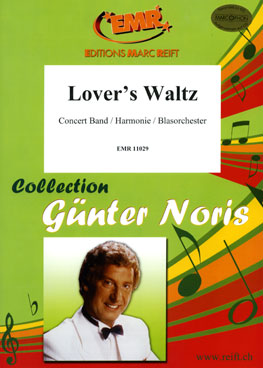 £100.00
£100.00LOVER'S WALTZ (Intermediate Concert Band) - Noris, Gunter
Estimated dispatch 7-14 working days
-
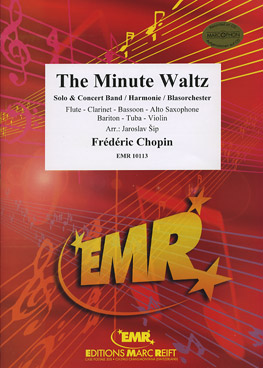 £84.00
£84.00MINUTE WALTZ, The (Flexible Solo with Advanced Concert Band) - Chopin, Frederic - Sip, Jaroslav
Solo for Flute, Clarinet, Basson, Alto Sax, Baritone, Tuba or Violin. Duration: 1:25
Estimated dispatch 7-14 working days
-
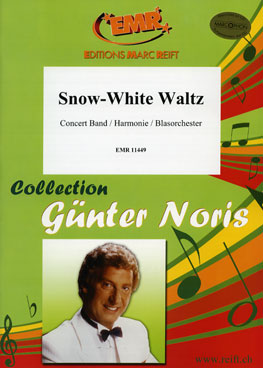 £92.00
£92.00SNOW-WHITE WALTZ (Intermediate Concert Band) - Noris, Gunter
Duration: 2:50
Estimated dispatch 7-14 working days
